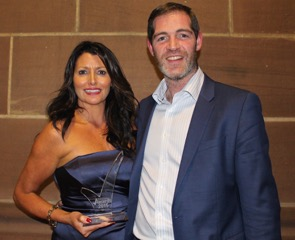Are you worrying that your students may not be getting the right support to meet their individual needs? What do you have in place for your pupils least likely to come out of school with the best education?
 There is so much change happening in the education sector at the moment. The call for all schools to become academies by 2020 has sparked debate; getting into top universities is becoming even more competitive. The class of 2017 will have a unique set of results – with number grades for English and Maths, and letter grades for other subjects. The following year will see more change with all grades moving to the numerical format. It is public knowledge that this change coincides with higher GCSE grades becoming more difficult to achieve. As a result, there is bound to be a level of uncertainty for some students, leaving them vulnerable and unsure.
There is so much change happening in the education sector at the moment. The call for all schools to become academies by 2020 has sparked debate; getting into top universities is becoming even more competitive. The class of 2017 will have a unique set of results – with number grades for English and Maths, and letter grades for other subjects. The following year will see more change with all grades moving to the numerical format. It is public knowledge that this change coincides with higher GCSE grades becoming more difficult to achieve. As a result, there is bound to be a level of uncertainty for some students, leaving them vulnerable and unsure.
And that’s before you even consider the personal issues affecting the day to day lives of pupils. Perhaps you are aware that certain students are going to struggle with choosing their options or that despite being academically gifted, some of the pupils suffer from anxiety which hinders their progress in exams. You may be worried that Abigail is likely to go into meltdown even before the start of her GCSEs or Joe is going to find the decision making too much to cope with on top of everything else he is dealing with at the moment.
What does this mean and how will you help your vulnerable students prepare for this change?
If you are able to offer students the uninterrupted space and opportunity to think and talk about their futures, work with the challenges they are facing and be empowered to make choices with confidence, this will help them in times of change.
Students will develop greater resilience if they are encouraged to voice their challenges and ask for the support they need to work with them.
If you can find a way to give more focus to developing their people skills alongside achieving the best grades possible this will set them up for an easier transition into life after school.
Finding the right support in school to help students with options and career choices can be challenging in itself. That's why we would like to thank our guest blogger, Sheila Bradbrook from Oasis School of Human Relations for her thoughts on this topic. If you require further support in this area, Oasis can help. ‘What’s Next For Me?’ is their two day programme tailored to work with the needs of your students, whether they are choosing their options, starting their GCSEs or making decisions about sixth form, college, employment or university. If you would like to find out more please contact Sheila Bradbrook by calling 01937 541700 or email sheila@oasishumanrelations.org.uk

 Having caught the judges’ eyes with their ‘A La Carte’ careers advice spanning everything from Apprenticeships to Oxbridge, Calderstones School in Liverpool, took the coveted Career Aspiration Award at the region’s hotly contended Educate Awards.
Having caught the judges’ eyes with their ‘A La Carte’ careers advice spanning everything from Apprenticeships to Oxbridge, Calderstones School in Liverpool, took the coveted Career Aspiration Award at the region’s hotly contended Educate Awards.
 New research carried out on more than 80,000 15 to 18 year olds by the leading website for school and college leavers has revealed that more than a quarter still have ‘no idea’ what they want to do once their compulsory education finishes. The study also indicated that less than one quarter of those polled are considering university as an option; with apprenticeships, college and gap years all popular choices.
New research carried out on more than 80,000 15 to 18 year olds by the leading website for school and college leavers has revealed that more than a quarter still have ‘no idea’ what they want to do once their compulsory education finishes. The study also indicated that less than one quarter of those polled are considering university as an option; with apprenticeships, college and gap years all popular choices.